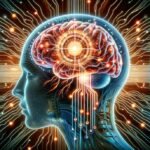AGI in Music Composition
AGI is revolutionizing music composition, offering capabilities that complement human creativity. Systems like OpenAI's MuseNet and Google's Magenta can analyze vast musical databases, identifying patterns and styles to create innovative soundscapes. These AI composers are not just mimicking existing work but generating novel compositions.
The integration of AI in music creation extends to live performances, where machines and musicians collaborate to produce unique experiences. This synergy allows for the exploration of new musical territories and helps artists overcome creative blocks.
AI is also changing how listeners interact with music, enabling personalized playlists and unique mixes based on individual preferences. As AI continues to evolve, it's becoming an invaluable tool in the music industry, expanding the possibilities of what can be achieved in composition and performance.
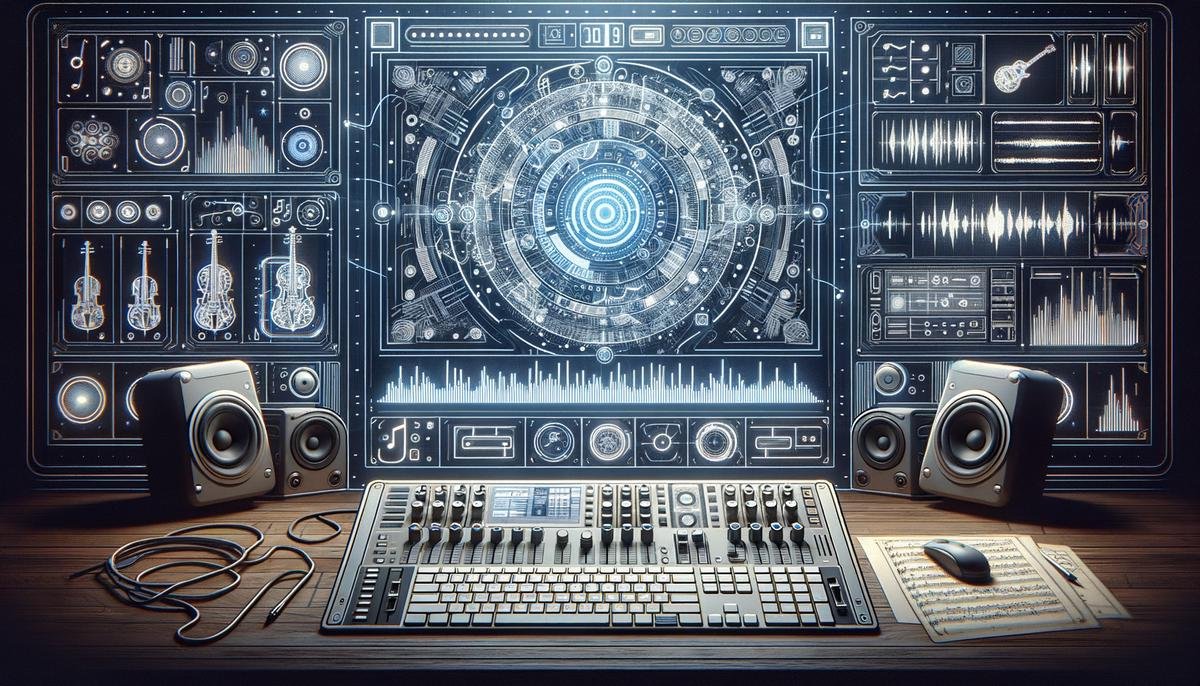
Technological Integration in Live Performances
The fusion of technology and live music is creating immersive experiences that push creative boundaries. Performances like Anyma's cybernetic opera showcase how robotic musicians and AI-driven compositions can enhance traditional concerts.
In these futuristic setups, technology becomes an integral part of the performance rather than just a supporting element. Robotic musicians, for instance, can play alongside human performers, blending mechanical precision with human expressiveness.
Advanced venues like The Sphere elevate the audience experience through state-of-the-art sound systems and immersive displays. This technological integration transforms spectators from passive listeners into active participants in the musical journey.
The collaboration between musicians and digital artists is breaking down barriers between different artistic mediums, resulting in multi-sensory experiences that engage audiences on multiple levels. This technological revolution in live music is opening new avenues for artistic expression and reshaping the future of performances.
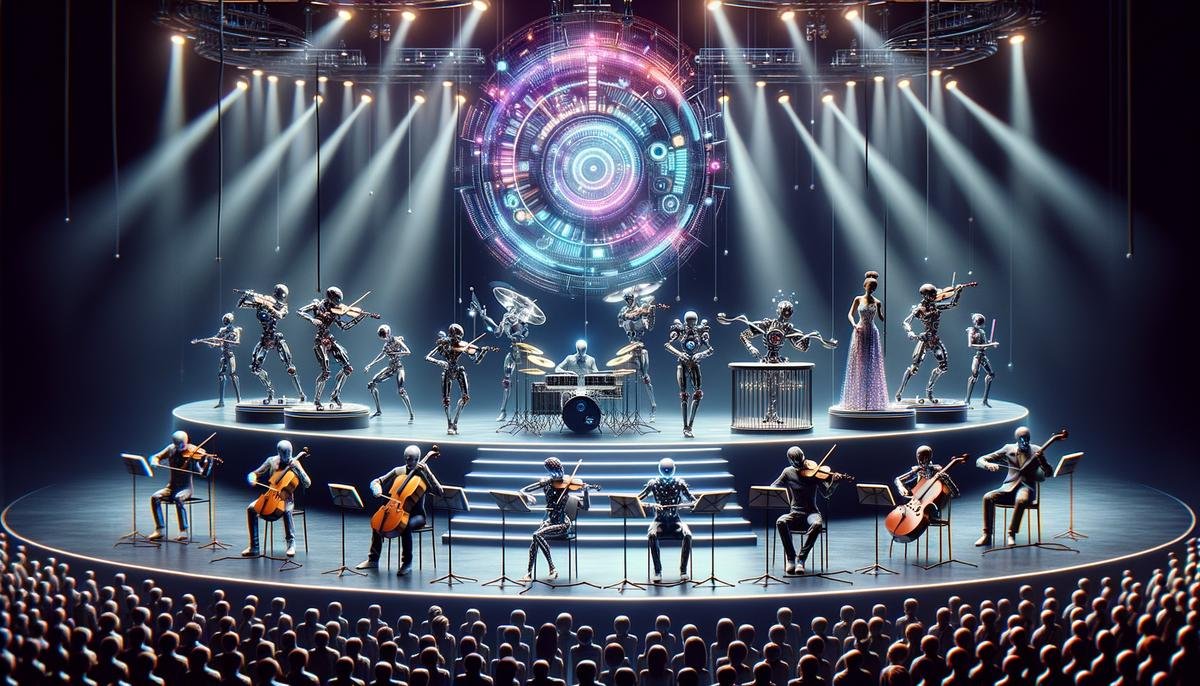
Human and Machine Collaboration
The partnership between human musicians and machines creates a dynamic interplay that combines human creativity with technological precision. This collaboration allows artists to explore new musical territories while maintaining the emotional depth that resonates with audiences.
For example, a jazz pianist improvising alongside an AI accompanist can create a unique performance where both human intuition and machine adaptability contribute to the musical narrative. This synergy enables musicians to focus on artistic expression while machines handle complex technical aspects.
Anyma's cybernetic opera exemplifies this collaboration, where robots engage in a cello duet within an electronic opera. Such performances showcase how technology can enhance rather than overshadow human creativity, offering new possibilities for artistic expression.
As these collaborations evolve, they're fostering a new creative ecosystem in the music industry. This fusion of human ingenuity and technological advancement is pushing the boundaries of what's possible in music creation and performance.
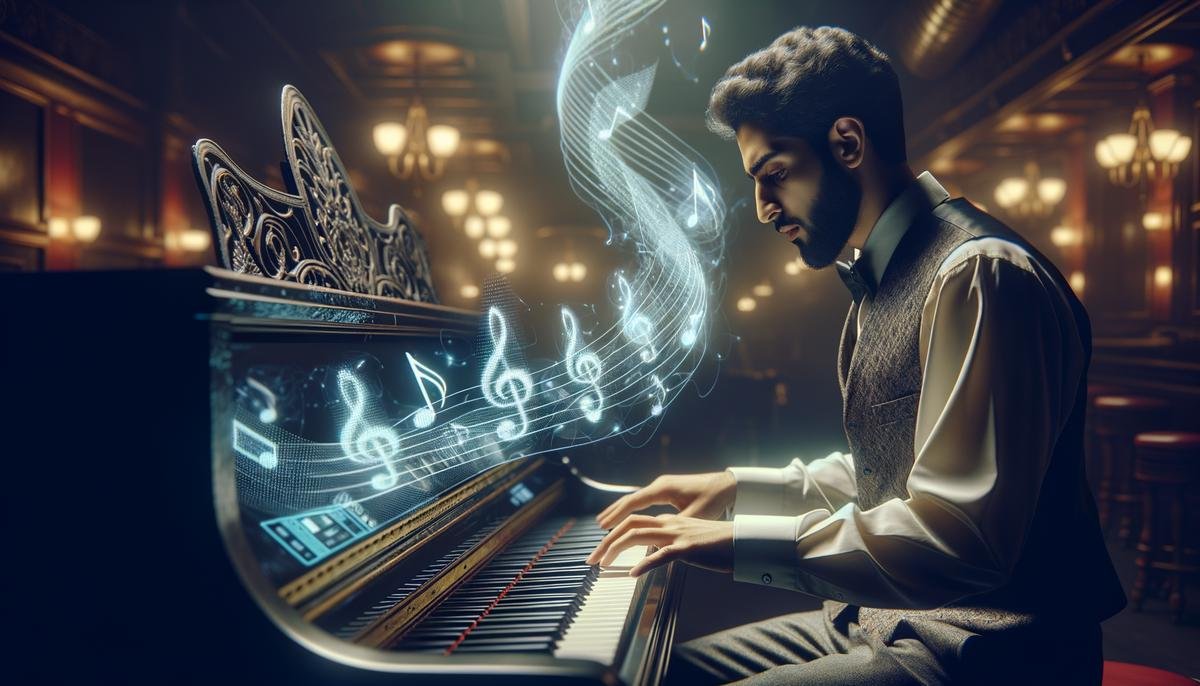
Philosophical Implications of AGI in Music
The integration of AGI in music raises profound philosophical questions about creativity, consciousness, and the nature of artistic expression. As AGI becomes more involved in composing and performing music, we're challenged to reconsider what it means to be creative and whether machines can possess true artistic genius.
This development also prompts us to examine the relationship between consciousness and musical expression. As AGI contributes to creating emotionally resonant music, we must consider the implications for our understanding of machine consciousness and the essence of human experience.
The growing role of AGI in music also raises ethical questions about ownership and attribution. As human-machine collaborations become more common, determining the rights and responsibilities associated with AI-assisted creations becomes increasingly complex.
These philosophical inquiries extend beyond music, encouraging us to reflect on the broader implications of human-machine interactions in creative fields. As we navigate this new terrain, we're compelled to reassess our definitions of creativity, consciousness, and the evolving dynamics between humans and intelligent machines.
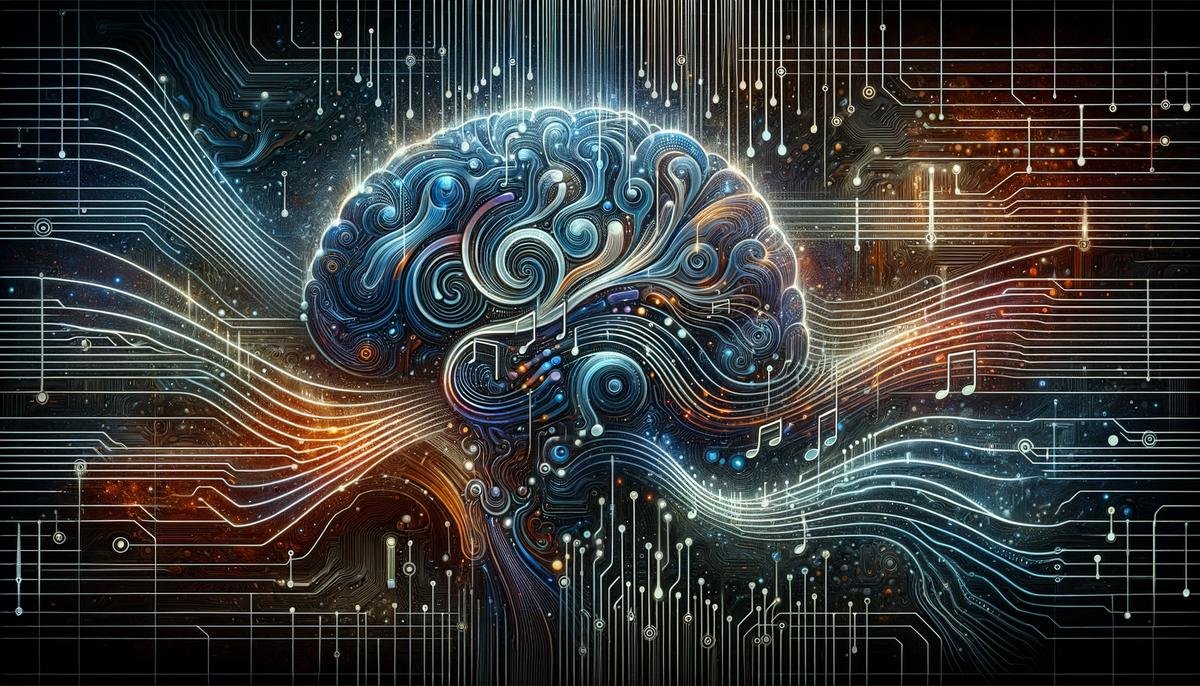
Future of Music and AGI
The future of music with AGI promises exciting possibilities and challenges. AGI could drive the creation of entirely new genres, blending influences from various musical traditions in unprecedented ways. This could lead to a democratization of music creation, with more people having access to sophisticated composition tools.
However, this evolution raises important questions about the music industry's future. Traditional roles and institutions may need to adapt to remain relevant in an era where AI collaborators are commonplace. Educational pathways in music might shift to focus more on human-machine collaboration.
Challenges in the AGI-Music Landscape:
- Intellectual property rights
- Digital security in music creation
- Protection of unique expressions from both human and AI creators
While the future holds great potential for innovation in music, it's essential to ensure that AGI enhances rather than overshadows human creativity. The goal is to create a harmonious blend where artificial intelligence and human ingenuity work together to push the boundaries of musical expression.
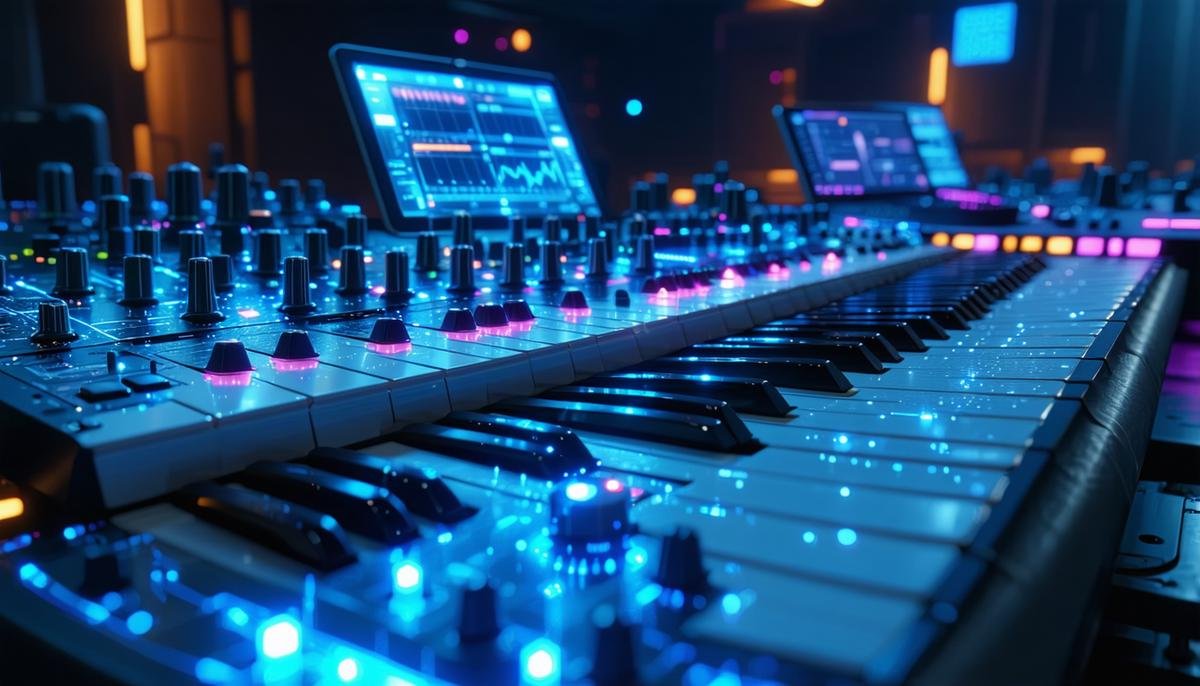
As technology and human creativity continue to intertwine, the collaboration between artificial intelligence and music is opening new avenues for artistic expression. This partnership between human ingenuity and machine capabilities is set to redefine how we create, perform, and experience music in the years to come.
- Anyma. The End of Genesys: A Cybernetic Opera. Las Vegas: The Sphere; 2023.




